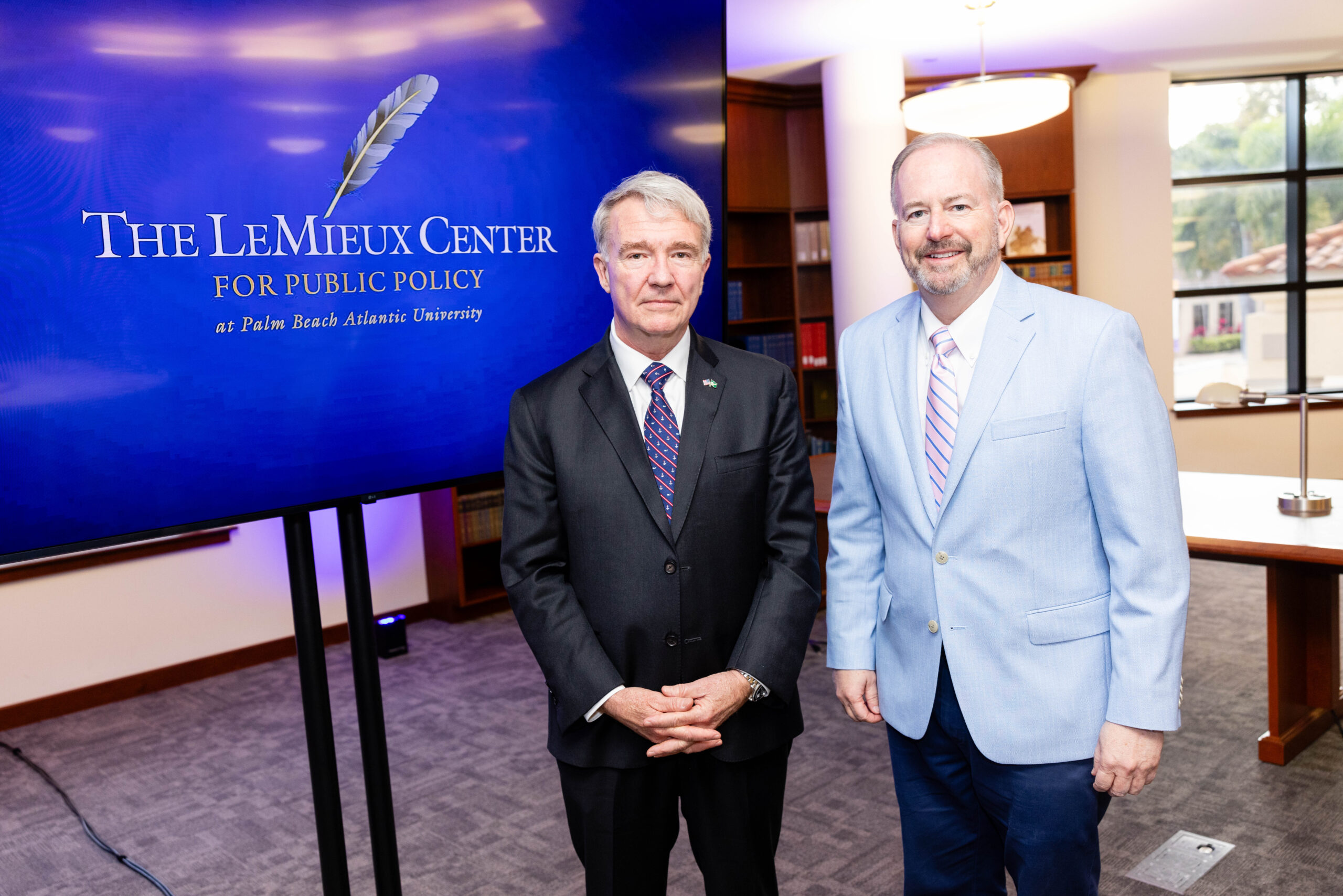General Kenneth F. McKenzie, Jr., former Marine Corps general and commander of the United States Central Command, was invited by the LeMieux Center for Public Policy at Palm Beach Atlantic University (PBA) to share his analysis of the current conflict in the Middle East based on his real-world experience and knowledge.
General McKenzie currently serves as the Executive Director of the University of South Florida’s Global and National Security Institute and Executive Director of the Florida Center for Cybersecurity, also known as Cyber Florida. General Kenneth F. McKenzie, Jr. has led a distinguished 42-year military career, commanding at multiple levels within the Marine Corps and serving on the Joint Staff. His leadership roles included commanding the First Battalion, Sixth Marines, and the 22nd MEU (SOC) during combat deployments to Afghanistan and Iraq. As a Brigadier General, he contributed to wartime administration transitions and later helped shape strategic policies for the U.S. Central Command and the Marine Corps. Promoted to General in 2019, McKenzie took command of CENTCOM, a role he held until his retirement from the Marine Corps in April 2022.
Discussing the topic, ‘Turmoil in the Middle East: Past, Present and Future,’ at the Warren Library on Monday, April 8, McKenzie warned Palm Beach Atlantic University students, faculty, and community members that the only way for the Israel conflict to be brought to an end is to find a way for Israel to be secure from organizations like Hamas and to provide for the well-being of people in Gaza.

Understanding the Roadmap to Peace
“We are all on board; Hamas has got to go. But at some point, people have to live in Gaza. You have to plan for how those people are going to be fed, watered, met with other services, and hopefully how they will not be radicalized by organizations like Hamas,” General McKenzie said.
General McKenzie advises Israel to think about their plan moving forward. This plan in his line of work is referred to as “instate.” In order to figure out their instate, he shared that Israel needs to ask themselves where they want to be in the next five or 10 years. Once they identify their goals, they can assess what steps will be necessary to accomplish them.
However, this comes with obstacles, including assessing the number of inevitable civilian casualties. This comes from fighting in what General McKenzie finds to be one of the most challenging places to conduct combat in the world. Unlike the desert, which has given the military more room to maneuver and minimize harm, this war is being undertaken in compact and crowded cities, amplifying the potential consequences of military activity.
General McKenzie explains that war inevitably involves the loss of innocent lives, but the rule is that the gain of some tactical advantage must always be worth the cost. According to McKenzie, each country makes this risk versus benefit assessment differently, and Israel’s decisions are undoubtedly impacted by its unique geographic position and opposition.
Navigating Challenges and Proposing Solutions
“It’s a difficult problem to solve…Time is running out. Time is running against the Israelis as we go forward,” McKenzie said.
Still, General McKenzie firmly believes there cannot be a future without a two-state solution based on new tactics and not on old, failed policies. Without a two-state solution, the area is only promised constant and never-ending war. According to McKenzie, focusing on any solution that does not help both Israelis and Palestinians is ultimately going down a path that will only lead to absolute disaster.
“My good friends in Israel tell me I’m a fool, and I don’t know what we are saying. I know what I’m saying. I understand the costs and complexities…I understand what is happening in Gaza, and I understand that Hamas can’t be sitting at the table when it’s all over. Yet you have to find a way for these two states to co-exist,” McKenzie said.
For more information on these and other events, visit the LeMieux Center for Public Policy webpage.



